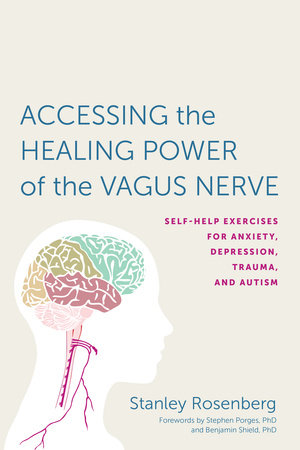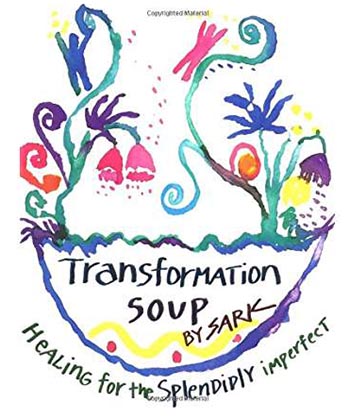Mindsight is the term that Dr. Daniel J. Siegel, a pioneer in the emerging field of interpersonal neurobiology, coined to help us understand how we can harness the power of our minds for personal transformation. With Practicing Mindsight, this acclaimed author and speaker invites you to join him for an online course that explores how to resculpt our neural pathways, and break free from the mental patterns that hold us back from living life to the fullest.
YOU MIGHT ALSO LIKE
CLEAR ALL
BY TOPIC
BY TEACHER
BY TYPE
FILTER

TOPIC
- Healing Approaches (22)
- Chronic Health Conditions (19)
- Meditation (18)
- Brain Health (17)
- Neuroplasticity (17)
- Self-Care (17)
- Self-Discovery (17)
- Trauma Healing (17)
- Autoimmune Disease (15)
- Stress (15)
- Trauma (14)
- Dementia (12)
- Science and Spirituality (12)
- Well-Being (12)
- Altered States (11)
- Consciousness (11)
- Depression (11)
- Illness and Injury (11)
- Psychedelic Research (11)
- Anxiety (10)
- Child’s Trauma (10)
- Integrative Medicine (9)
- Mindfulness (9)
- Polyvagal Theory (9)
- Romantic Relationships (9)
- Spiritual Healing (9)
- Epigenetics (8)
- Honoring Emotion (8)
- Memory (8)
- Physical Health (8)
- Self-Worth (8)
- Stress Management (8)
- Chronic Pain (7)
- Living with Illness (7)
- Neurodiversity (7)
- Relationship Challenges (7)
- Self-Development (7)
- Self-Love (7)
- Yoga (7)
- Aging (6)
- Awareness (6)
- Breathwork (6)
- Cognition (6)
- Diet and Nutrition (6)
- Fear (6)
- Happiness (6)
- Mindfulness Meditation (6)
- Self-Acceptance (6)
- Self-Reflection Practices (6)
- Black Well-Being (5)
- Buddhism (5)
- Caregiver Well-Being (5)
- Dysfunctional Childhood (5)
- Emotional Intelligence (EQ) (5)
- Empathy (5)
- Grief (5)
- Habit Formation (5)
- Imagination and Creativity (5)
- Inflammation (5)
- Inner Life (5)
- Life Force Energy (5)
- Naturopathy (5)
- Neuropsychology (5)
- Parenting (5)
- Psilocybin (5)
- Psychology (5)
- Quantum Physics (5)
- Reiki (5)
- Synesthesia (5)
- Authenticity (4)
- Ayurveda (4)
- Chakras (4)
- Child’s Emotional Growth (4)
- Community Healing (4)
- Compassion (4)
- Decision Making (4)
- Embodiment (4)
- Empowerment (4)
- Inner Peace (4)
- Joy (4)
- Love (4)
- LSD (4)
- Medical Intuition (4)
- Mental Health Challenges (4)
- Perception (4)
- PTSD (4)
- Religious Experience (4)
- Resilience (4)
- Self-Realization (4)
- Self-Reckoning (4)
- Sex (4)
- Spirituality and Health (4)
- Transformation (4)
- Visualization (4)
- Willpower (4)
- Women’s Well-Being (4)
- Accepting Love (3)
- Addiction (3)
- Autism (3)
- BIPOC Well-Being (3)
- Cancer (3)
- Chronic Anxiety (3)
- Clinical Depression (3)
- Divorce and Breakup (3)
- Energy Balancing (3)
- Forgiveness (3)
- Habits of Mind (3)
- Healthy Eating (3)
- Herbal Supplementation (3)
- Holism (3)
- Infidelity (3)
- Intimacy (3)
- Journaling (3)
- Longevity (3)
- Mindfulness Practices (3)
- Racism (3)
- Search for Purpose (3)
- Self-Actualization (3)
- Self-Limiting Beliefs (3)
- Shadow (3)
- Suffering (3)
- Taoism (3)
- Transcendent Experience (3)
- Abandonment (2)
- Astral Projection (2)
- Bodywork (2)
- Building Character (2)
- Children’s Well-Being (2)
- Cognitive Behavioral Therapy (2)
- Collective Trauma (2)
- Connection (2)
- Courage (2)
- Death and Dying (2)
- Digital Life (2)
- Disconnection (2)
- Dreamwork (2)
- Exercise (2)
- Fellowship and Community (2)
- Female Empowerment (2)
- Gender Identity (2)
- Generosity (2)
- Growth Mindset (2)
- Guilt (2)
- Human Potential (2)
- Incarceration (2)
- Inner Child (2)
- Intention (2)
- Ketamine (2)
- Kindness (2)
- Kundalini Yoga (2)
- Letting Go (2)
- Lifestyle Medicine (2)
- Marriage (2)
- MDMA (2)
- Oneness (2)
- Positive Thinking (2)
- Problem Solving (2)
- Psychedelic-Assisted Therapy (2)
- Racial Healing (2)
- Racial Justice (2)
- Reflexology (2)
- Sacred Feminine (2)
- Self-Esteem (2)
- Self-Mastery (2)
- Setting Limits and Boundaries (2)
- Sexual Assault or Abuse (2)
- Shame (2)
- Sleep (2)
- Somatic Practices (2)
- Synchronicity (2)
- Tibetan Buddhism (2)
- Toxic Relationships (2)
- Trust (2)
- Visions and Hallucinations (2)
- Vitamin Supplementation (2)
- Vulnerability (2)
- Wholeness (2)
- A Course in Miracles (1)
- Acceptance (1)
- Access to Education (1)
- Activism/Service (1)
- Acupressure (1)
- Alcohol Addiction (1)
- Anger Management (1)
- Attachment Theory (1)
- Aura (1)
- Auric Field (1)
- Belonging (1)
- Betrayal (1)
- Biofeedback (1)
- Biohacking (1)
- Body Image (1)
- Body Mapping (1)
- Body Positivity (1)
- Cannabis/CBD (1)
- Chakra Meditation (1)
- Challenges with Teens (1)
- Changes in Libido (1)
- Child’s Challenging Behavior (1)
- Chronic Fatigue (1)
- Climate Change (1)
- Codependency (1)
- Cognitive Psychology (1)
- Communication Skills (1)
- Compassion Meditation (1)
- Crystals (1)
- Death or Loss of a Loved One (1)
- Death or Loss of a Sibling (1)
- Disabled Well-Being (1)
- DMT (1)
- Dream Analysis (1)
- Ego (1)
- Ego Dissolution (1)
- Enlightenment (1)
- Enneagram (1)
- Facing Own Death (1)
- Family Therapy (1)
- Fasting for Health (1)
- Finding Meaning (1)
- Flower Essences (1)
- Foster Parenting (1)
- Freedom (1)
- Functional Medicine (1)
- Gender Challenges (1)
- Global Challenges (1)
- Goddess (1)
- Gratitude (1)
- Guided Meditation (1)
- Handling a Loved One’s Illness (1)
- Healing Touch (1)
- Heartmath (1)
- Hypnosis (1)
- Identity (1)
- Indigenous Healing Approaches (1)
- Inner Strengths (1)
- Insomnia (1)
- Integrity (1)
- Interdependence (1)
- Intergenerational Trauma (1)
- Intuition (1)
- Karma (1)
- Kundalini (1)
- Learning Styles (1)
- Living as an Empath (1)
- Loneliness (1)
- Lovingkindness (1)
- Lovingkindness Meditation (1)
- Massage (1)
- Movement Meditation (1)
- Near-Death Experience (1)
- Negative Self-Talk (1)
- New Relationships (1)
- Nightmares (1)
- Nonbinary Well-Being (1)
- Nutritional Medicine (1)
- Offering Support to Others (1)
- Optimism (1)
- Passion (1)
- Past Lives and Reincarnation (1)
- Personal Development (1)
- Personality Disorders (1)
- Play (1)
- Polarity Therapy (1)
- Positive Psychology (1)
- Positive Self-Talk (1)
- Post-Traumatic Growth (1)
- Prayer (1)
- Pregnancy and Childbirth (1)
- Psychoanalysis (1)
- Psychological Approaches (1)
- Qigong (1)
- Racial Identity (1)
- Relationship with Money (1)
- Reproductive Health (1)
- Rolfing (1)
- Self-Compassion (1)
- Self-Control (1)
- Self-Pressure (1)
- Self-Reliance (1)
- Sexual Health (1)
- Shamanic Healing (1)
- Sleep Disorders (1)
- Social Anxiety (1)
- Social Justice (1)
- Social Media Addiction (1)
- Somatic Experiencing (1)
- Soul Mission (1)
- Sound Healing (1)
- Speaking Your Truth (1)
- Spiritual Awakening (1)
- Spiritual Growth (1)
- Spiritual Life (1)
- Spirituality and Politics (1)
- Subconscious (1)
- Tarot (1)
- Telepathy (1)
- The Divine (1)
- Time Management (1)
- Transgender Well-Being (1)
- Transpersonal Psychology (1)
- Trauma-Informed Therapy (1)
- Traumatic Grief (1)
- Weight Concerns (1)
- Work Relationships (1)
- Young Adult Well-Being (1)
- Youth Activism (1)
- Zen Meditation (1)
FILTER

TEACHER
- Helen Fisher (5)
- Richard Davidson (5)
- Rick Hanson (5)
- Sue Morter (5)
- Daniel Goleman (4)
- Daniel J. Siegel (4)
- Joe Dispenza (4)
- Lisa Feldman Barrett (4)
- Lissa Rankin (4)
- Robin Carhart-Harris (4)
- Andrew Weil (3)
- Annie Hopper (3)
- Bruce Lipton (3)
- David Eagleman (3)
- David Perlmutter (3)
- Debbie Ford (3)
- Diane Stein (3)
- Jill Bolte Taylor (3)
- Mantak Chia (3)
- C. Norm Shealy (2)
- C. S. Lewis (2)
- Donna Eden (2)
- Erin Clabough (2)
- Gabor Maté (2)
- Gregg Braden (2)
- Harriet Lerner (2)
- Herbert Benson (2)
- Joan Borysenko (2)
- Judith Orloff (2)
- Louise Hay (2)
- Pamela Miles (2)
- Queen Afua (2)
- Stan Tatkin (2)
- The Dalai Lama (2)
- Alan Cohen (1)
- Alok Vaid-Menon (1)
- Anat Baniel (1)
- Anil Seth (1)
- Anita Moorjani (1)
- Anna Lembke (1)
- Anodea Judith (1)
- Arnold Mindell (1)
- Ashley Neese (1)
- Bessel van der Kolk (1)
- Blaise Aguirre (1)
- Brené Brown (1)
- Byron Katie (1)
- Caroline Myss (1)
- Dacher Keltner (1)
- Daniel Gilbert (1)
- David Feinstein (1)
- David R. Hawkins (1)
- Deena Metzger (1)
- Dilip Jeste (1)
- Edward Bach (1)
- Elisa Shankle (1)
- Elisabeth Haich (1)
- Glennon Doyle (1)
- HeatherAsh Amara (1)
- Helen Palmer (1)
- Henry Grayson (1)
- Howard Gardner (1)
- Jacqui Lewis (1)
- Jessica Dore (1)
- Jesus (1)
- Judith Blackstone (1)
- Judson Brewer (1)
- Larry Ward (1)
- Lauren Walker (1)
- Leah Guy (1)
- Leonard Orr (1)
- Lewis Howes (1)
- Lisa Wimberger (1)
- Lorin Roche (1)
- Marianne Williamson (1)
- Martin Seligman (1)
- Matthieu Ricard (1)
- Michael Bernard Beckwith (1)
- Michio Kaku (1)
- Mona Lisa Schulz (1)
- Nicole LePera (1)
- Nicole Sachs (1)
- Oliver Sacks (1)
- Oriah Mountain Dreamer (1)
- Penelope Quest (1)
- Peter A. Levine (1)
- Peter Crone (1)
- Reema Datta (1)
- Roland Griffiths (1)
- Ruby Wax (1)
- Sanjay Gupta (1)
- SARK (1)
- Shakti Gawain (1)
- Stephen Harrod Buhner (1)
- Stephen Levine (1)
- Tony Robbins (1)
- Virginia Satir (1)
- Yung Pueblo (1)
- Zainab Salbi (1)
- Zalman Schachter-Shalomi (1)










